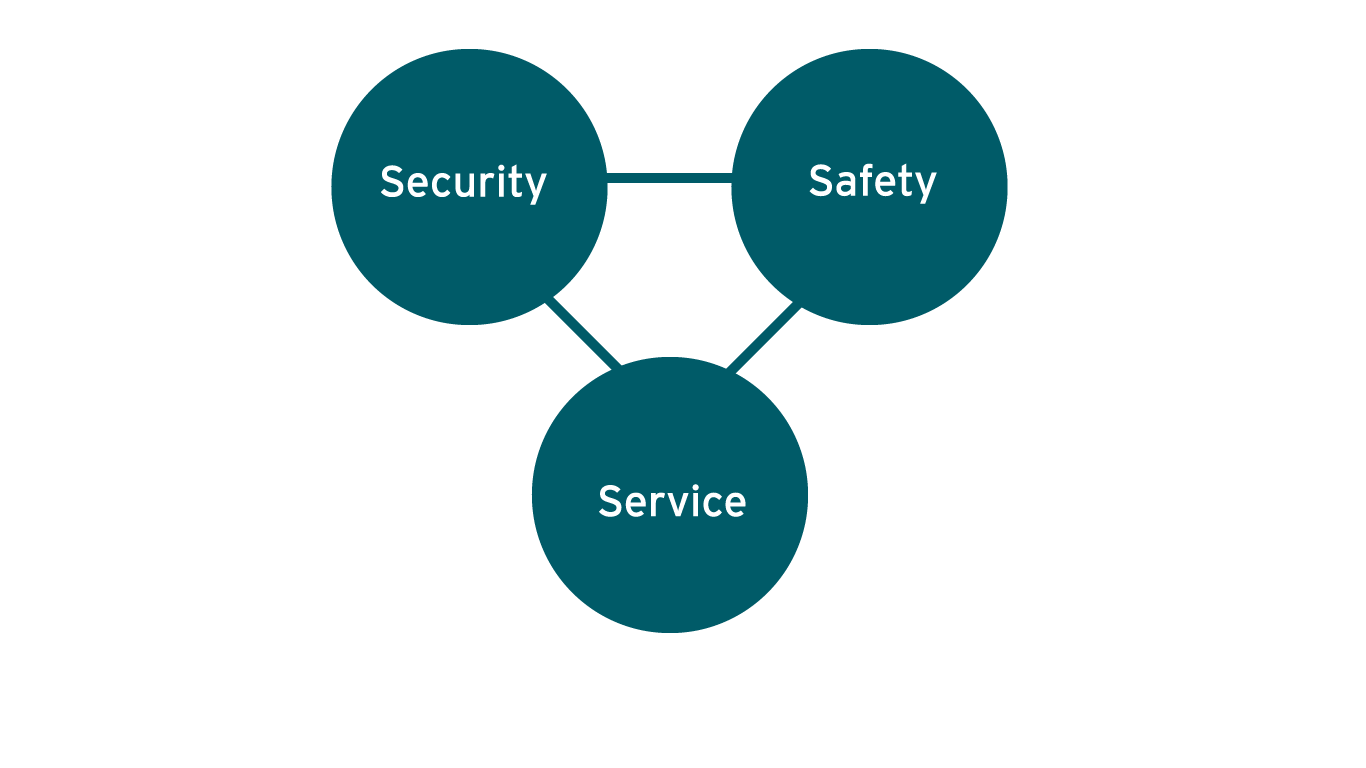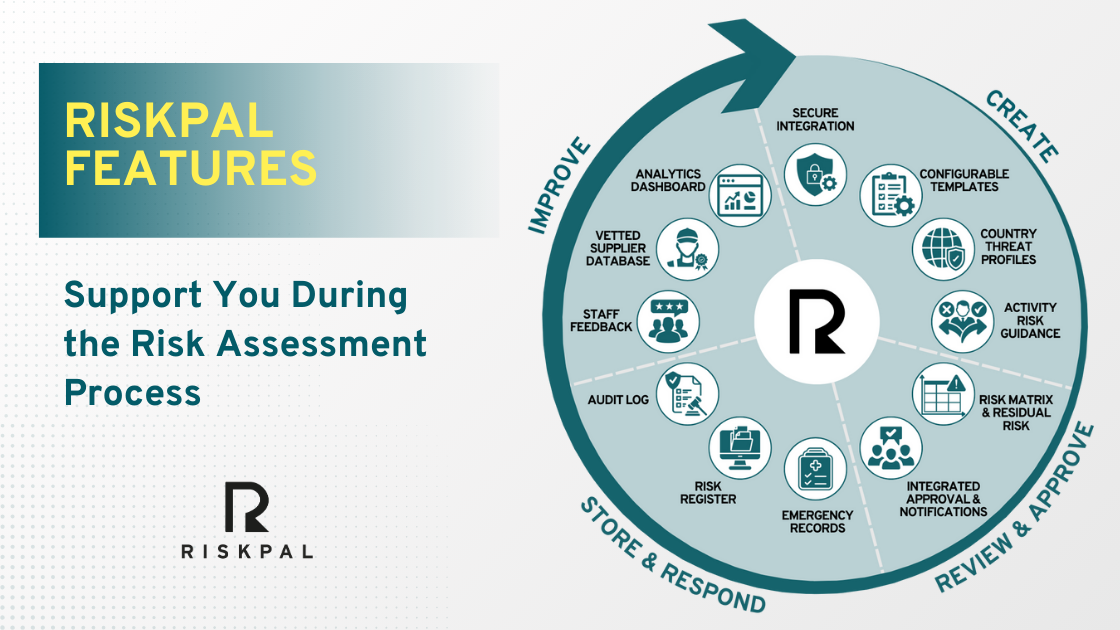Eric Stuart On Event Security & Risk Management
After the immense difficulties the events industry has faced in the past two years, it’s been a huge relief to see a summer of festivals, concerts and sporting activity well underway around the world. But after the severe impacts and stop-start nature of restrictions during the pandemic, event management still faces several challenges getting back into full swing.
Furthermore, in the UK, event security professionals continue to interpret and reflect on the Manchester Arena Inquiry findings published last year. Among many other key findings and recommendations, the inquiry shone light on the inadequacies of the risk assessments conducted in advance of the fatal May 2017 concert.
RiskPal spoke to an expert, Eric Stuart QPM, on what has been learnt thus far and how the industry is adapting in face of considerable change.
Eric Stuart QPM is the founder of Gentian Events as well as Chair of the UK Crowd Management Association, Chair of the Global Crowd Management Alliance, and an elected Events Industry Forum board member. He has been working with crowds for over 20 years planning and delivering crowd management plans and training in Europe, the US and Canada. He has a BA Hons Degree in Crowd Safety Management and a passion for keeping people safe at events.
RiskPal (RP): Have you observed any notable differences comparing events and crowd behaviour now to those before the pandemic?
Eric Stuart (ES): Undoubtedly. Although many dismissed the Wembley Men’s Euros Final in July last year as football hooligan behaviour, it was much wider than that. Most were not hooligans or even fans as such. It was an early warning for what might be coming, and it is certainly not over yet. Crowds generally seem less tolerant and more challenging. The do not want to be told what to do and they are pushing boundaries in ways and at a level we haven’t really seen before. The psychologists are looking at this change in behaviours intently and are forecasting that things will settle, but not for many months and potentially years before a ‘new normal’ is established.
RP: The industry still faces significant challenges. What do you see as the main difficulties facing the industry and how are you trying to manage these in your day-to-day work?
ES: As well as huge equipment shortages and increased events trying to share that equipment around, the biggest issue really is staff shortages and experience. Most UKCMA members are overbooking security and stewards up to 30% or even 40% and even then, delivering close to or just under numbers. However, some who are outside our groups are trying to maintain events with much reduced numbers and that is a worry.
Worse though, in some ways, is the lack of experience. Whilst numbers are rising, the loss of staff with years of service in the industry means that those rising numbers are in new joiners. It is a new world to them and with only a few experienced staff to teach them the ropes whilst also running around trying to fix issues occurring across event sites. It was another factor at Wembley; they made the numbers, but the experience was lacking and it was one of many contributing factors to the scenes we saw.
RP: Amid the difficulties, have you seen any new initiatives or trends emerge that you have found beneficial?
ES: One of the benefits of any tragedy is new learning. The deaths of ten people at Astroworld during the Travis Scott set, means that artists are far more focussed on their crowds and keeping them safe. We have seen a rush of artists calling ‘show stops’ which are actually show pauses, to look after people in the crowd. Now, undoubtedly, there will be some accusations, perhaps occasionally justified, that a few of these are virtue signalling, but the majority seem to be genuine attempts to make a difference. My main concern though is that any show stop or pause creates other risks and artists need to understand the full picture of how we implement that pause and, especially, the importance of a procedure for a restart. I am still supporting a 1200 capacity theatre in Canada, where a local Indie band stopped a show for a medical incident but the restart was so delayed that disorder occurred in the crowd, including fighting in the balconies, that could have had serious consequences, especially for those below. Understanding the band, the audience and how they will react is key, but preparing and informing and educating the bands is also crucial. If Astroworld has a positive outcome, it will be that we ultimately have safer crowds, so long as those lessons are learned.
RP: Volume 1 of the Manchester Arena Inquiry highlighted the inadequacies of the risk assessment process undertaken by event organisers, particularly pertaining to the terrorist threat. Are the weaknesses identified something you have seen before and have risk assessment practices changed at all since the Inquiry was published?
ES: This is a tricky one because the fact remains that most promoters, venues, security and stewarding companies are not specialists in matters of CT. There is a growing band of consultancy that focusses upon it, but we have relied heavily in the past on police and security services and in a way it seems we no longer can. The difficulty is that any increased CT screening will have an impact on other matters. Increased search regimes leads to longer queues and putting those crowds outside perhaps in more vulnerable spaces.
There is a difference between getting a few hundred employees into a building between 0800 and 1000 in the morning, compared to getting 50,000 into a sports or music venue in the same period. The former will know what is going to happen, how, where and when and will come prepared. Crowds at the latter may be new to that venue, unsure what they can or cannot bring, with a security team who work it for only a few days each year. Long queues will lead to frustration, anger and potentially disorder. It may lead to delayed start times and difficulties in people getting home.
These three aspects of Security, Safety and Service are separate entities but entirely interlinked. The public will ultimately decide how much it is prepared to sacrifice in terms of inconvenience and cost if it wants enhanced security at events. The fact is that changes to each one can detrimentally impact another.

RP: While the Protect Duty is yet to be finalised, do you anticipate it will drive any major changes in the way event security and crowd management are managed? Do you think the legislation will be mirrored in other international jurisdictions?
ES: It should and, in some ways, it might already have been possible for it to have done so. We have challenges ahead in terms of defining a ‘Publicly Accessible Location’, a ‘Competent Person Scheme’ to assess and implement the changes needed and who monitors and enforces any breaches. To assess the risk of a threat, mitigate it to its lowest reasonably acceptable level, train those who need to be trained and constantly monitor our performance and try to improve, along with having punishments for companies and individuals who fail to do so, sounds very much like the Health and Safety at Work Act 1974. Perhaps, had that been amended to include Counter Terrorism Measures as another risk we need to cater for, it might already have been enacted as amended legislation. It feels a little like trying to invent a wheel that is already working pretty well. That legislation, occasionally amended, has stood the test of time pretty well. The greatest challenge in many ways is the lack of training, experience and knowledge outside the police and security services, along with the likelihood that those expected to undertake the tasks (and those expected to monitor and enforce failures), will never have the intelligence picture that the authorities will have, so delivery will be challenging.
As to the second part? Yes, I think it will. UK ‘Common Law’ features in many countries around the world and much of our legislation is emulated elsewhere. If we get Protect right, others will follow suit although I suspect most will wait and see if we can deliver it first.
Struggling with outdated, time-consuming risk assessments? Discover why RiskPal is the smarter choice for risk management. Streamline workflows, improve compliance, and boost safety with our intuitive, customisable platform.
Learn about employers' legal duties to prevent sexual harassment under the Equality Act 2010. Discover practical steps to create safer workplaces, manage risks at work events, and stay compliant with UK legislation.
Discover how sensory cues like colours and sounds enhance risk assessment. Colin Pereira, RiskPal Co-Founder, shares insights on using visuals to simplify safety and improve decision-making.



